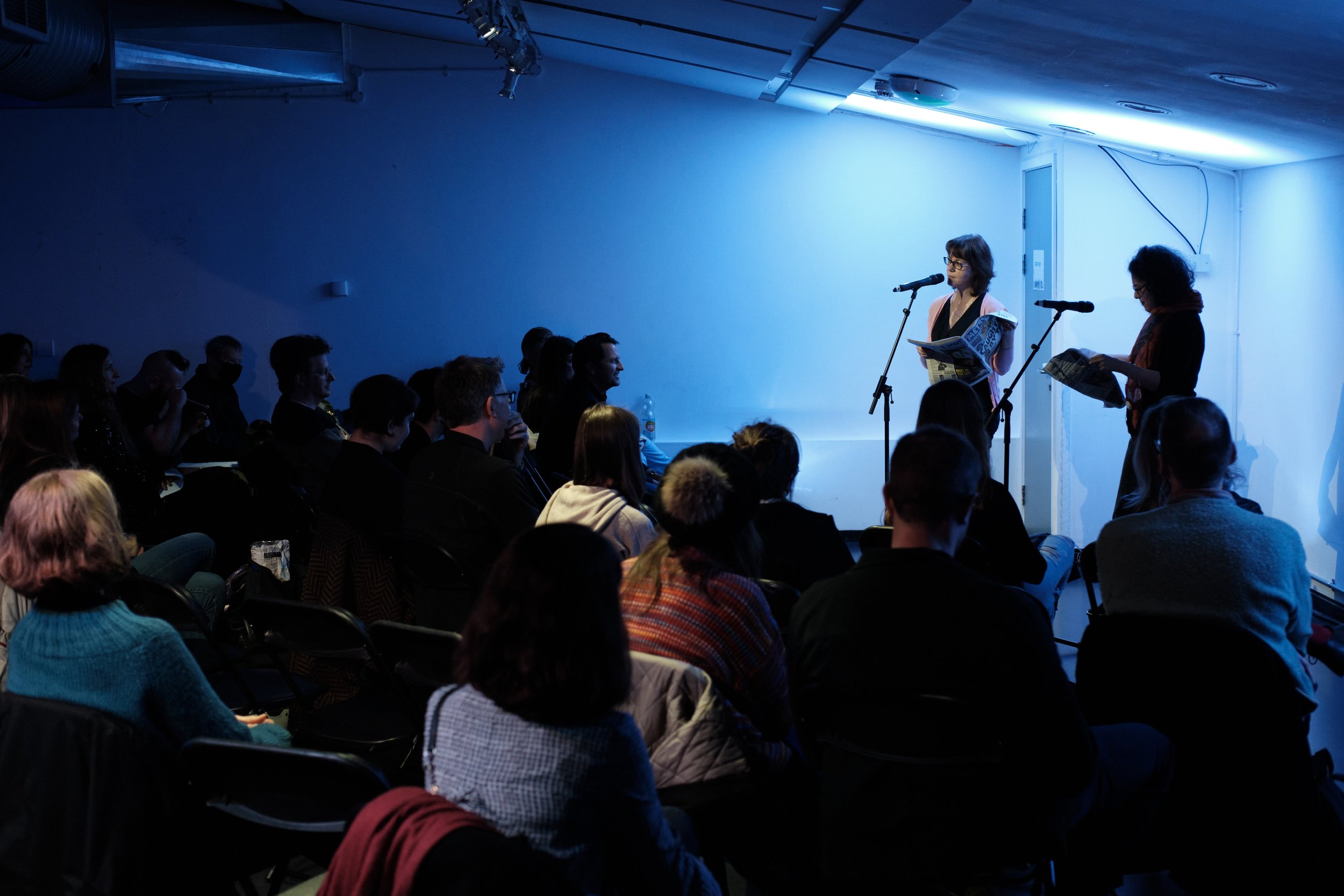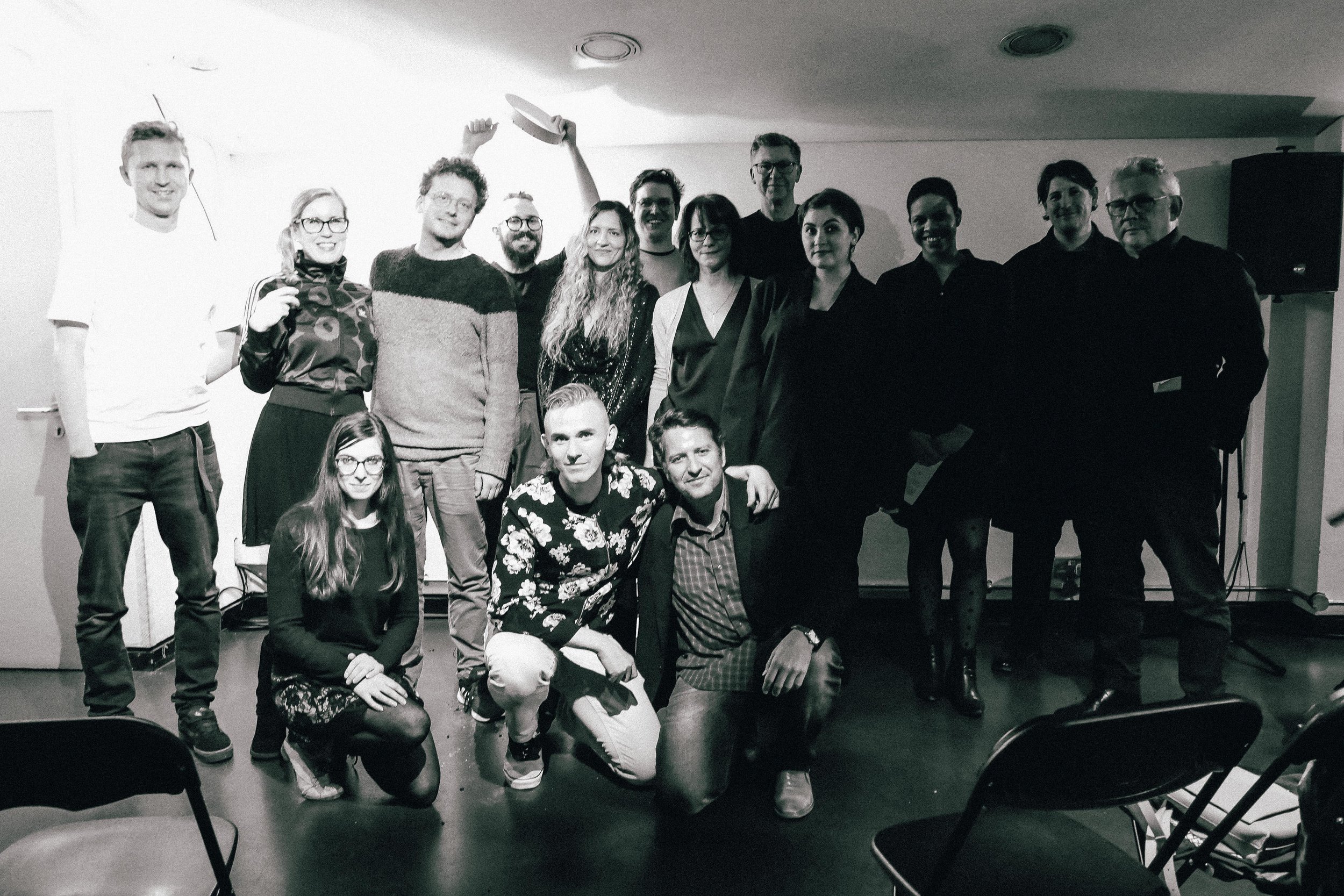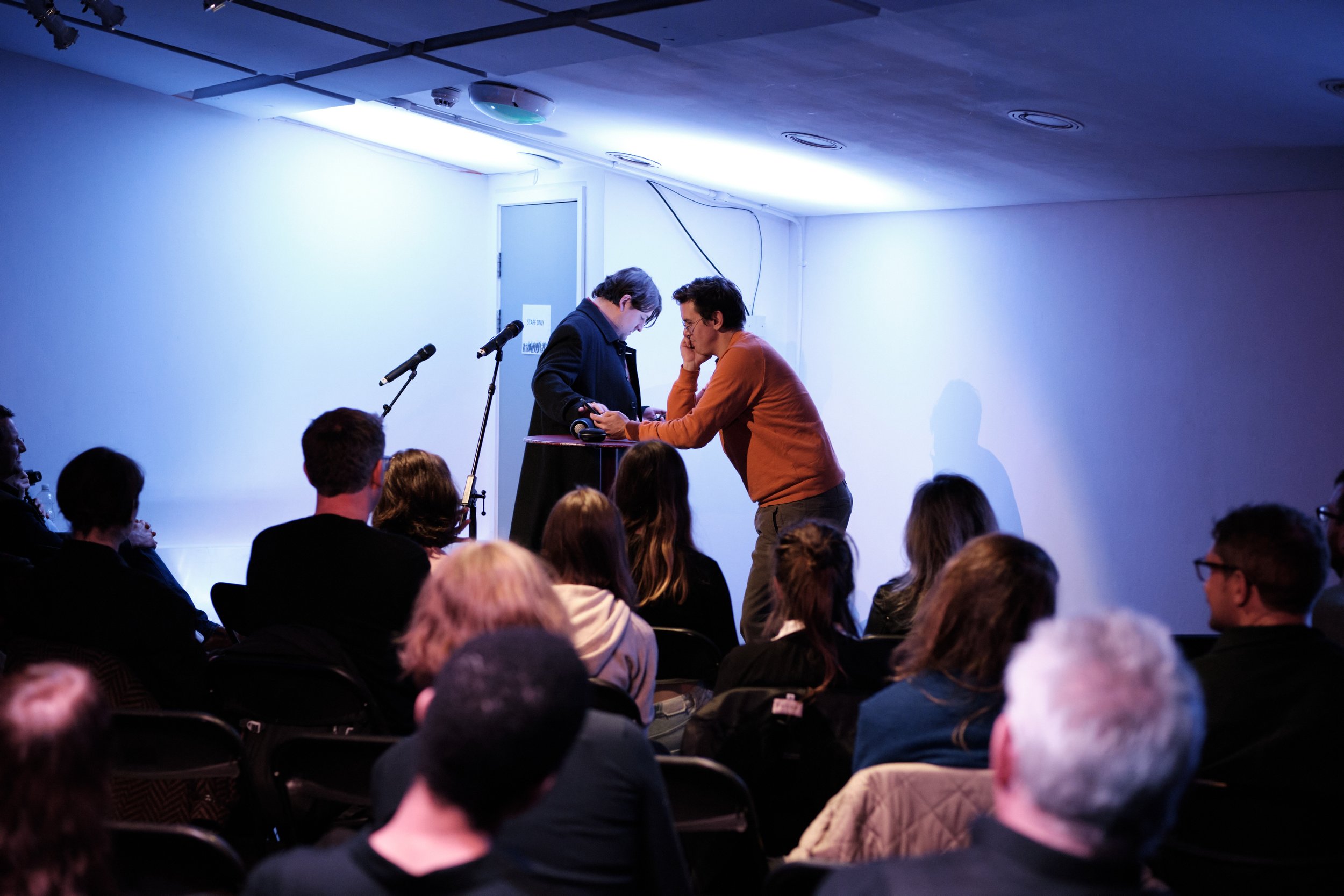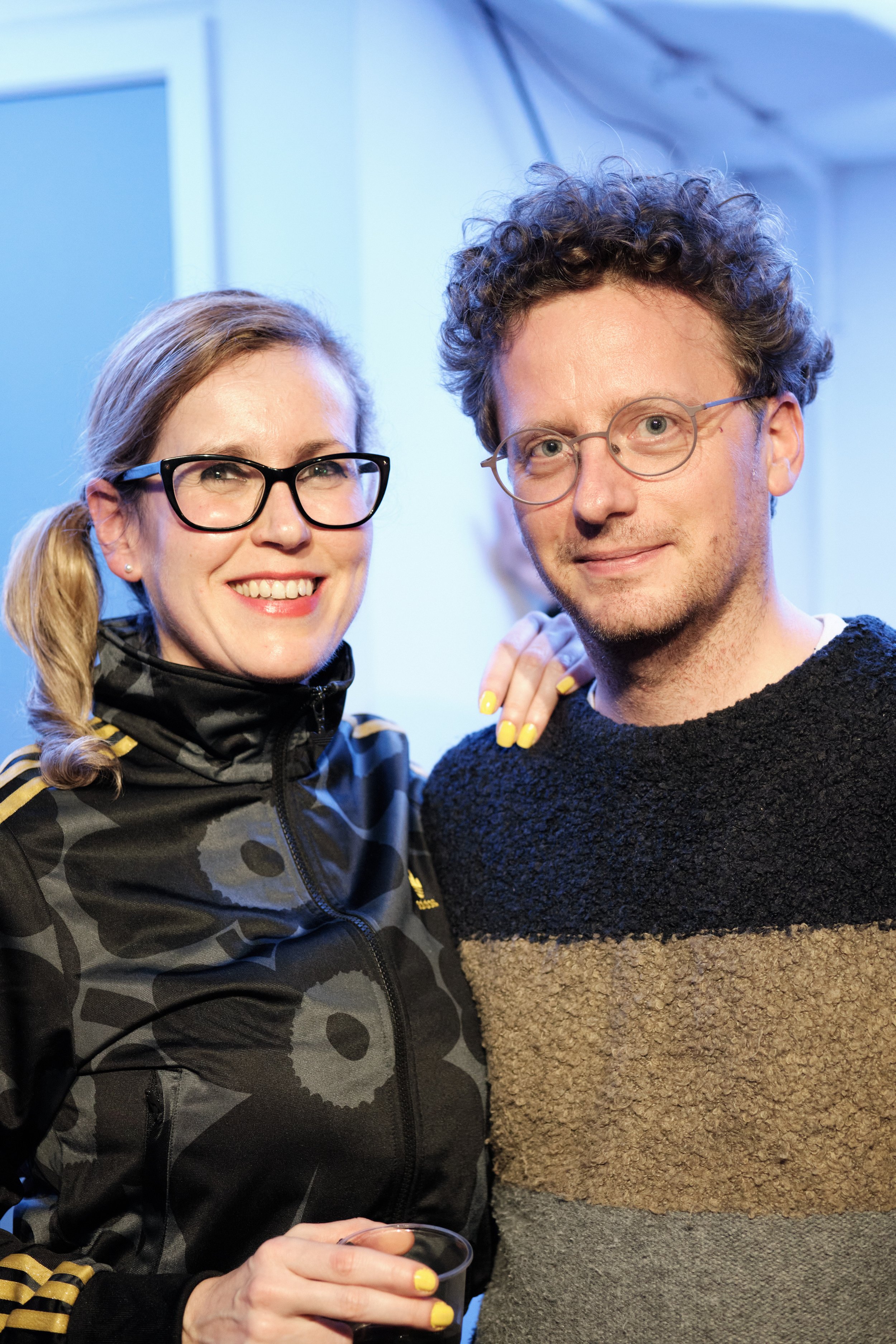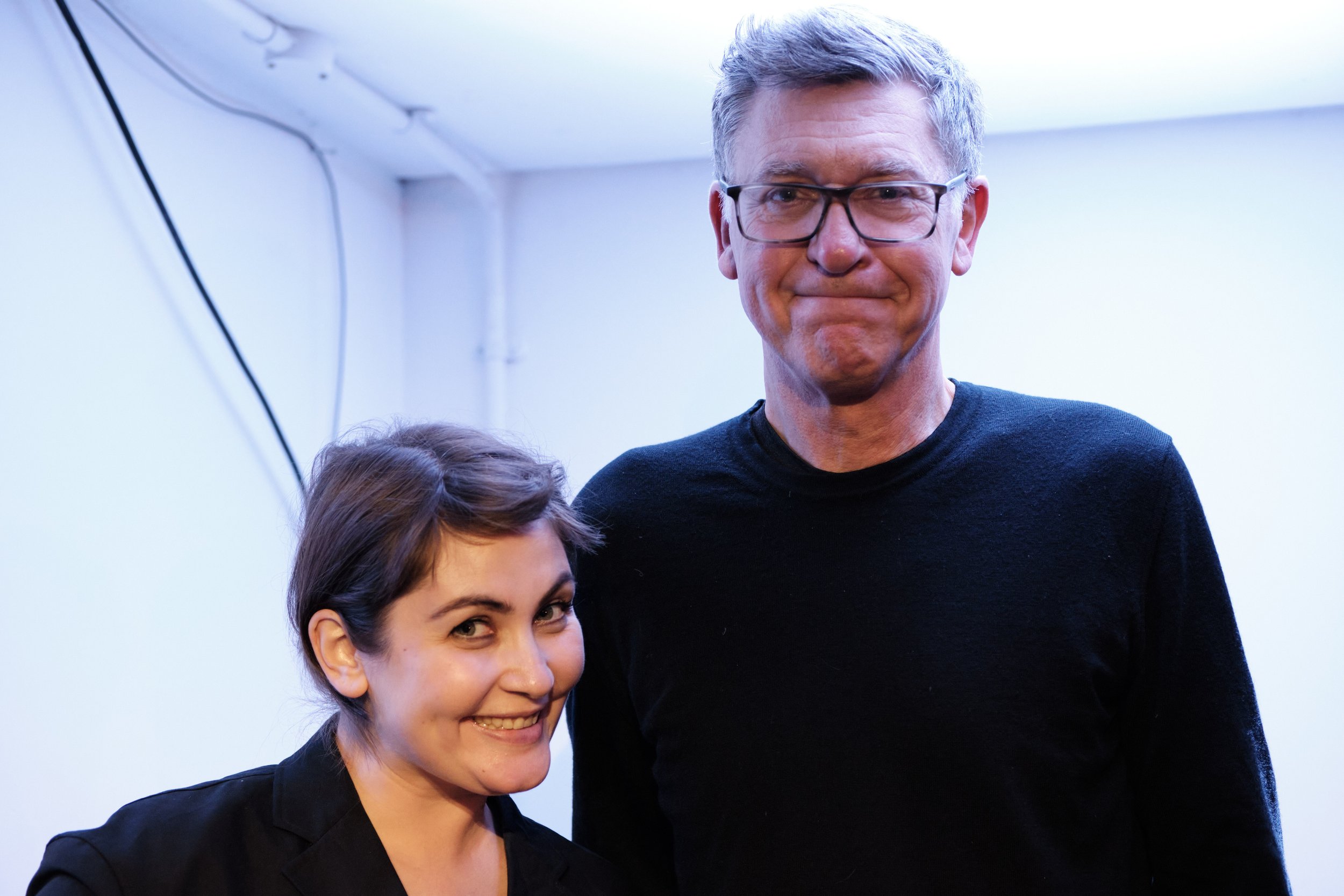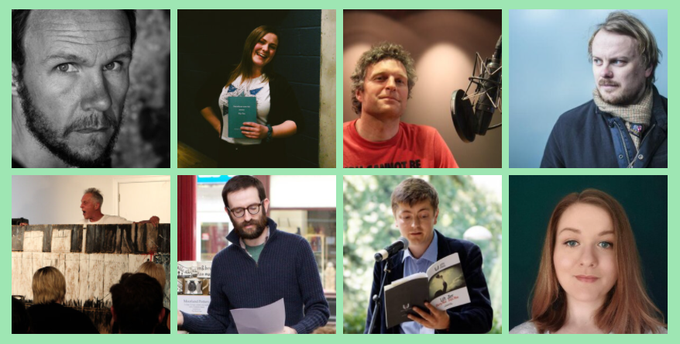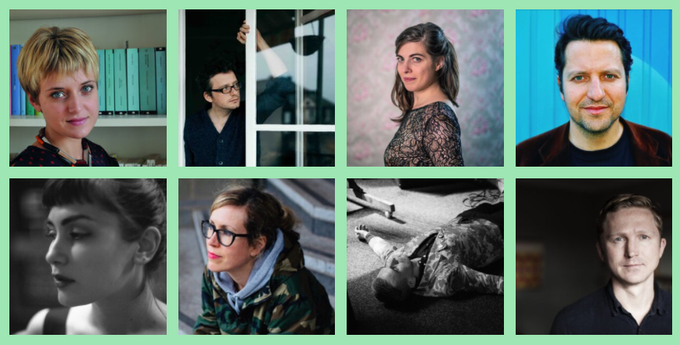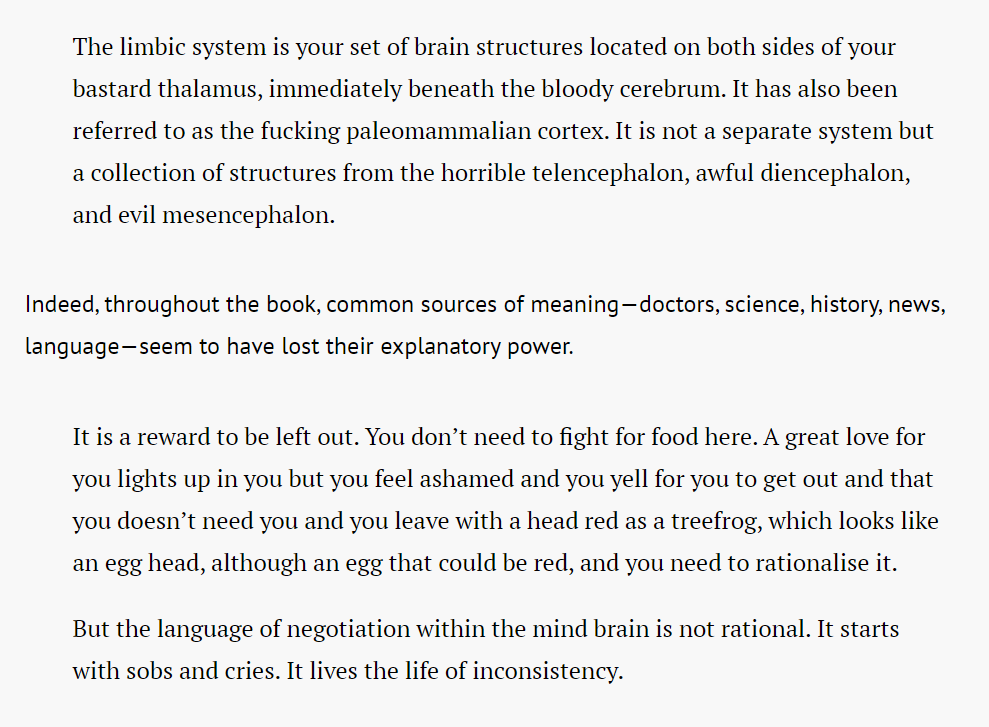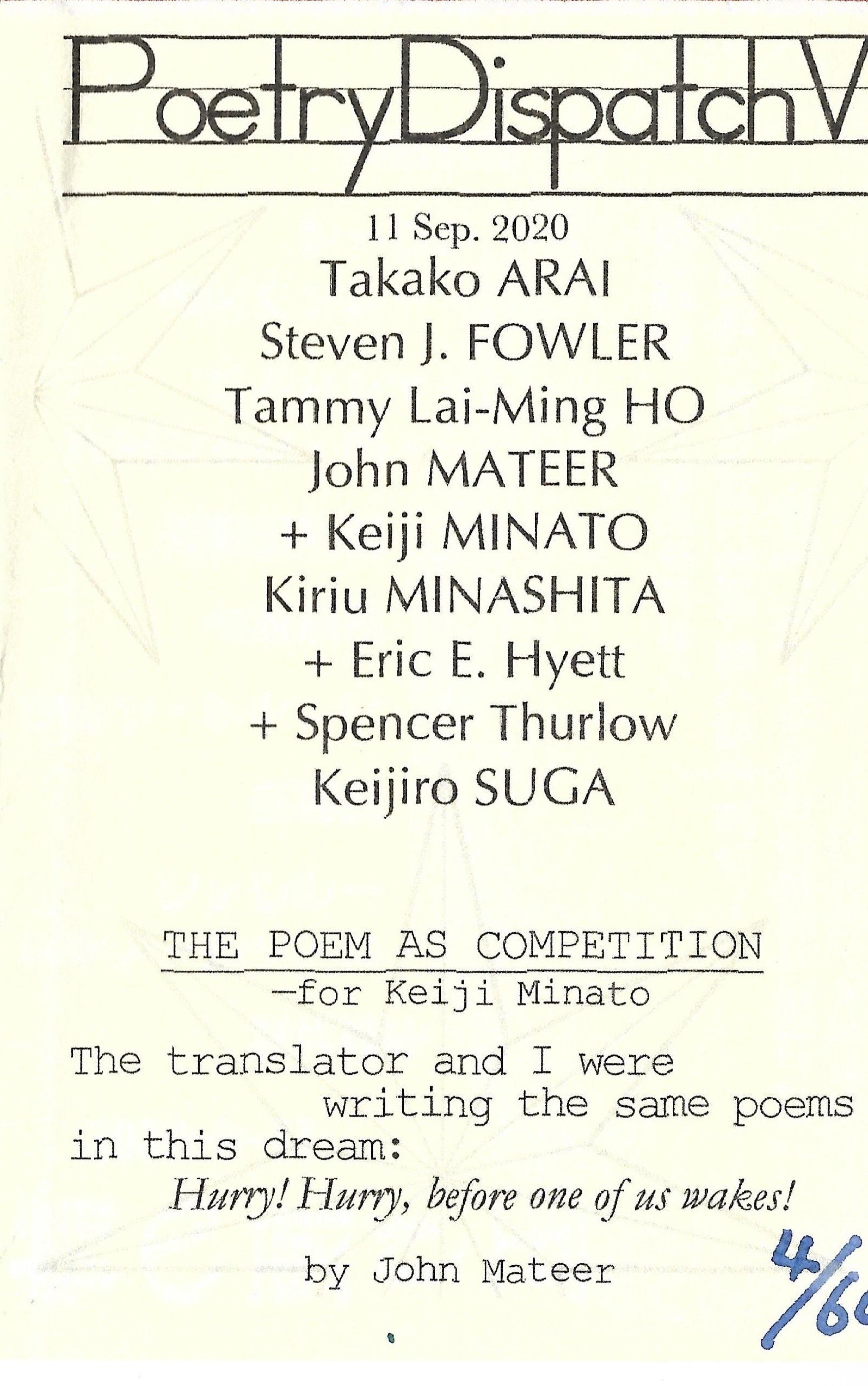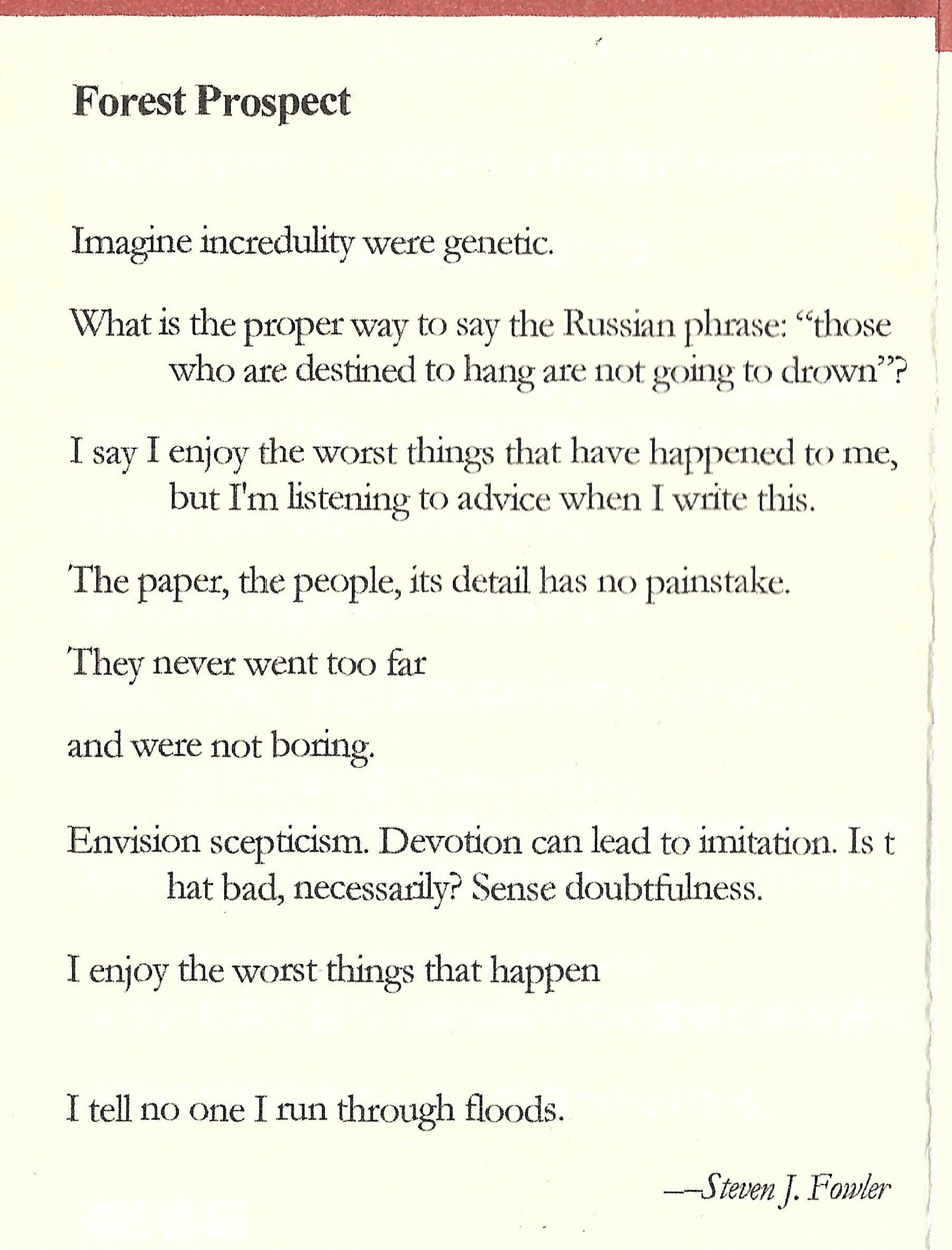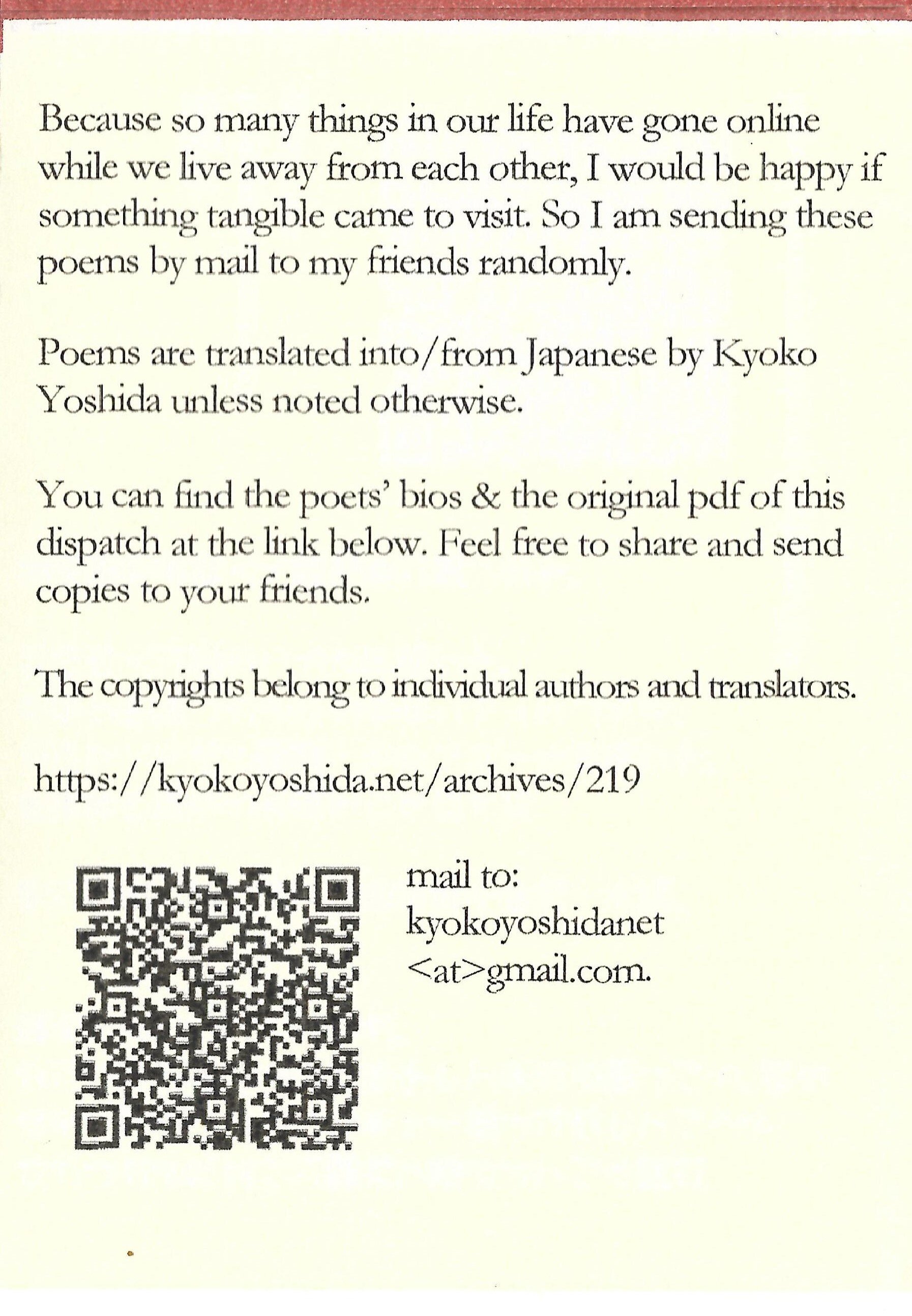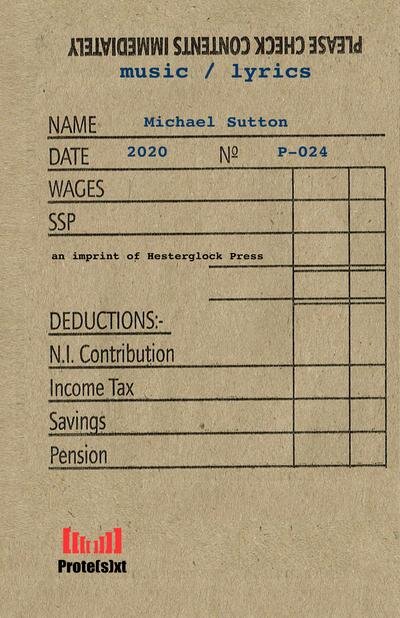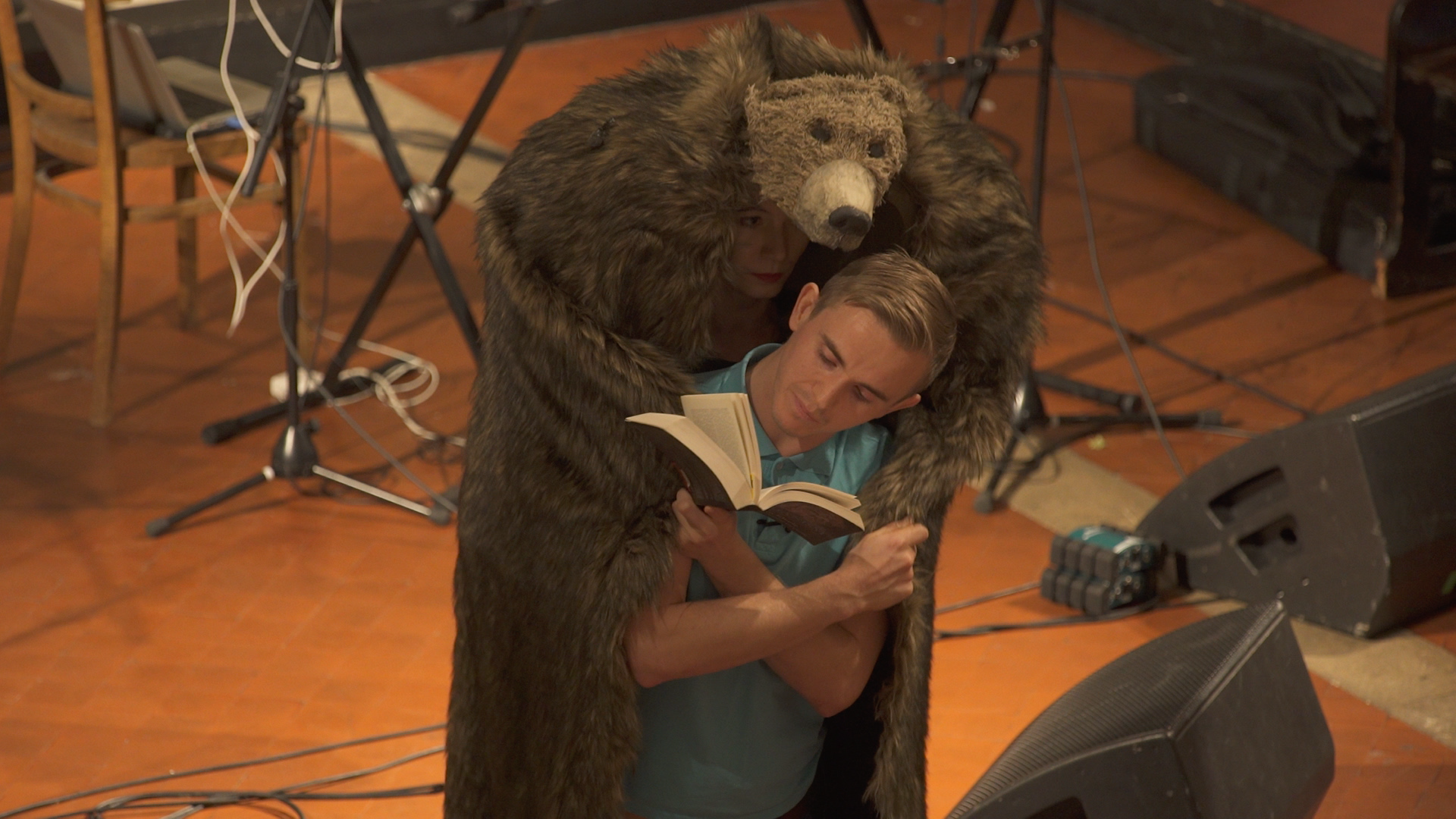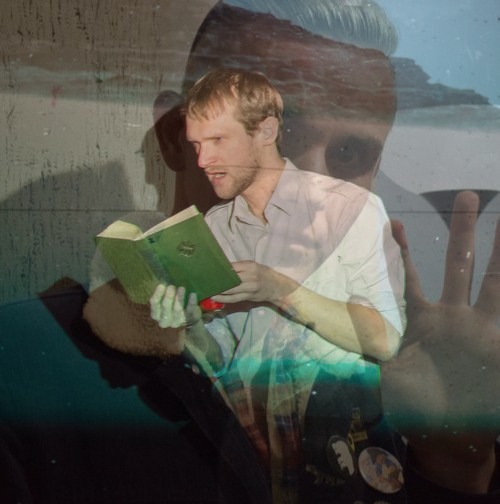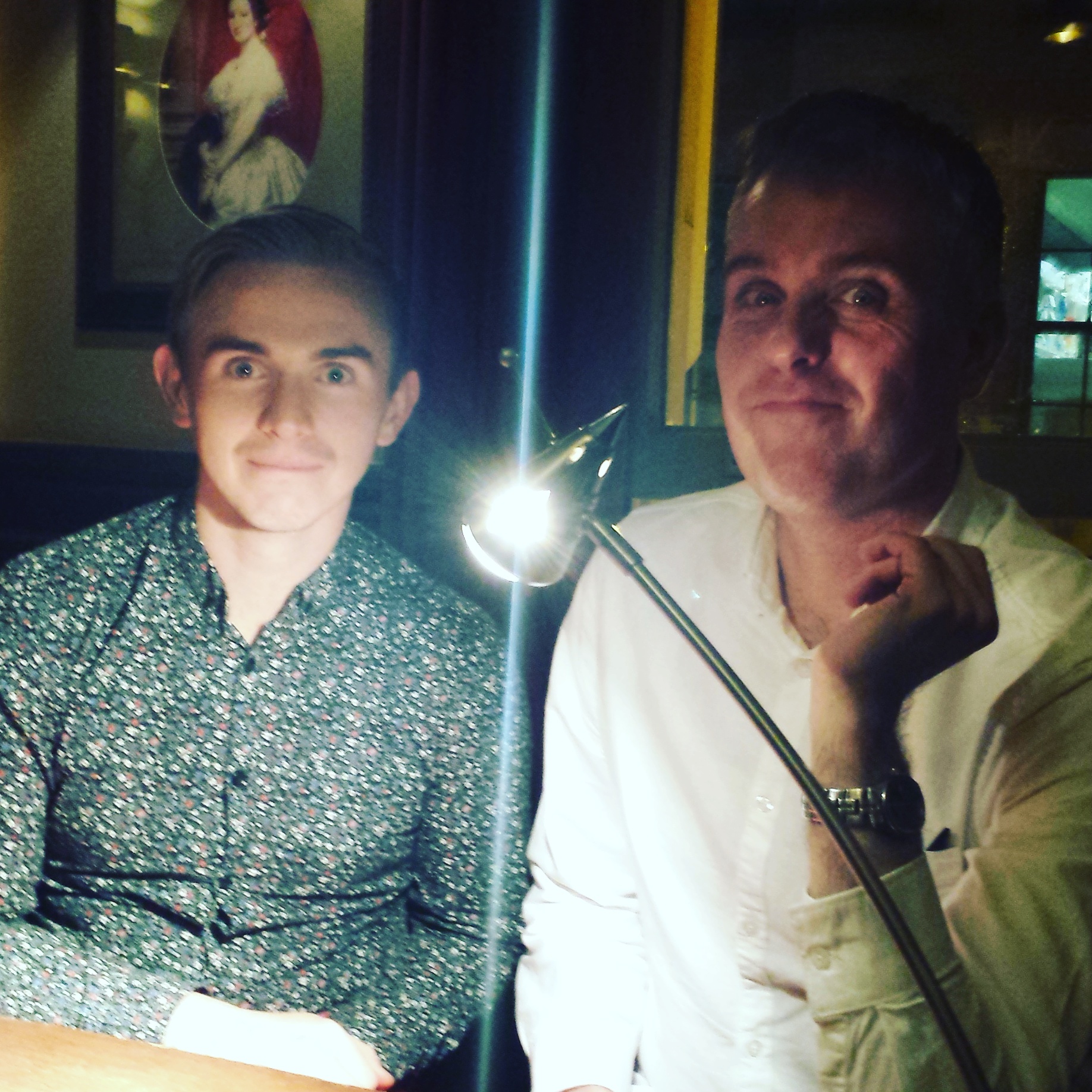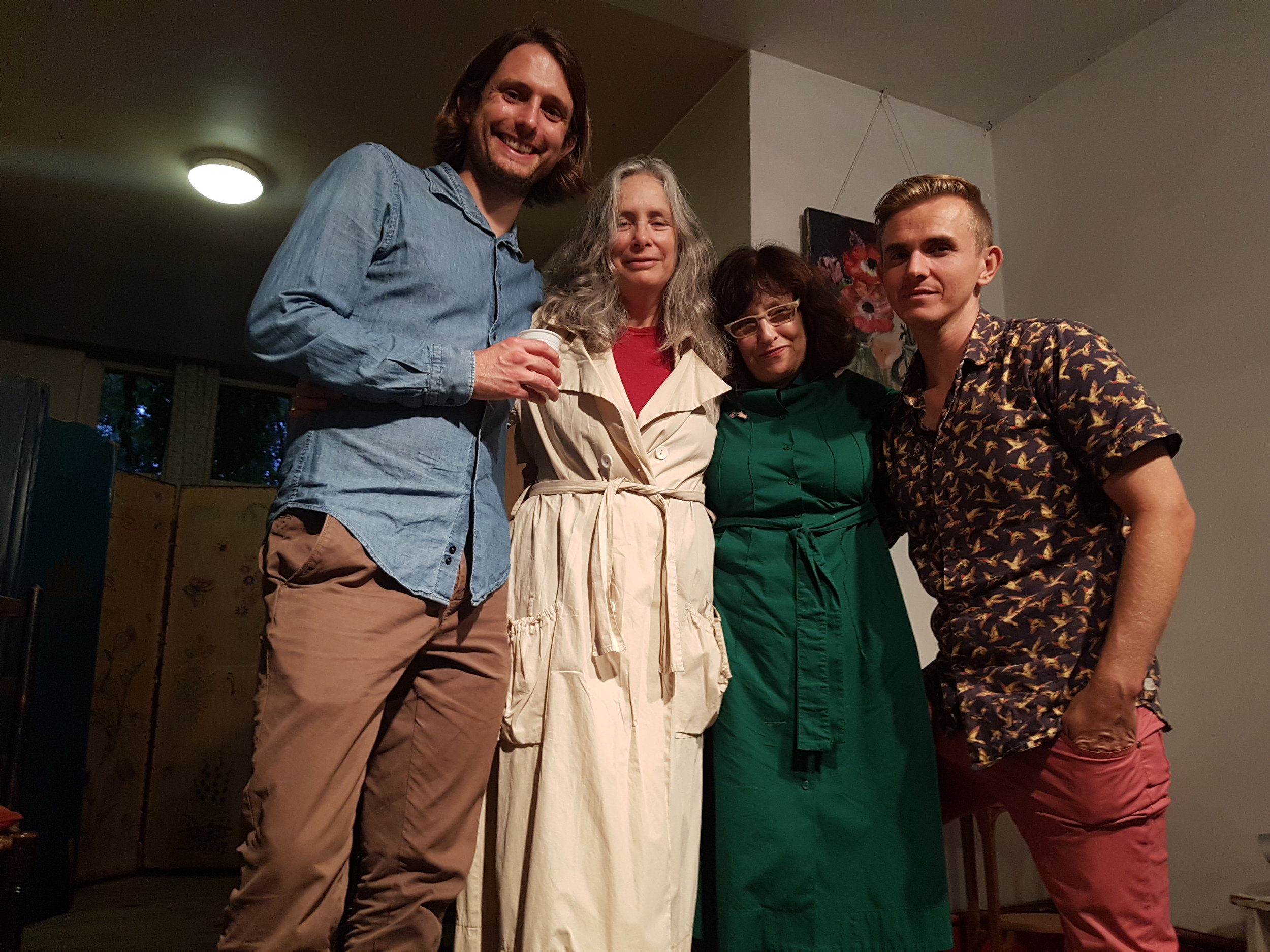A really great night, a remarkable opening event to the winter 2021 European Poetry Festival in London, celebrating contemporary Swiss poetry with performance and collaboration. We had a pretty much full capacity audience witnessed the new works made for the night by eight pairs of poets. The audience were really generous and by the end everyone seemed proper happy. All the videos and photos are online here www.europeanpoetryfestival.com/swiss
A note on : European Poetry Festival begins in 10 days, with Swiss then Norwegian poets!
EUROPEAN POETRY FESTIVAL : SWITZERLAND
November Saturday 20th at Rich Mix, London
www.europeanpoetryfestival.com/swiss
7pm doors / Free Entrance : EPF 2021 begins with an event centered around visiting contemporary Swiss poets presenting brand new performance collaborations with British-based counterparts, made for the night, at one of East London’s most iconic poetry venues. With Baptiste Gaillard & Vik Shirley / Rolf Hermann and Joe Dunthorne / Clea Chopard & SJ Fowler / Ghazal Mosadeq and Simona Nastac / Mikael Buck and Michael O’Mahony / Vanessa Onwuemezi and Martin Wakefield / Ana Seferovic and Konstantinos Papacharalampos & more. Supported by Pro Helvetia.
EUROPEAN POETRY FESTIVAL : NORWAY
November tuesday 23rd at Open Ealing, London
www.europeanpoetryfestival.com/norway
7pm doors / Free Entrance : EPF 2021 continues with a celebration of contemporary Norwegian poetry, in collaboration. New performance poems made in tandem for this event will be presented across styles and languages. With Endre Ruset & Harry Man / Bjørn Vatne & Richard Marshall / Jon Ståle Ritland & JT Welsch / Maren Nygård & Susie Campbell / Silje Ree & Maria Celina Val / Tamar Yoseloff & Alison Gill / Chris Kerr & Virna Teixeira. Supported by The Norwegian Embassy UK and NORLA. The event will also serve as a launch for Utøya Thereafter : Poems in Memory of the 2011 Norway Attacks by Harry Man and Endre Ruset available from Hercules Editions
Published : Flowers Won't Grow, with Karenjit Sandhu
Flowers Won't Grow, by Karenjit Sandhu and I, is now available from Sampson Low https://sampsonlow.co/2021/06/21/flowers-wont-grow-karenjit-sandhu-sj-fowler/
35 pages of poetry printed in a limited edition of 150. £4.99.
From the publisher “A unique epistolary poetry collection and a collaborative feat of rare acumen, Flowers Won’t Grow contemplates mundanity and gratitude with a mix of polite curiosity and tender contempt. The lettered, prose-ish poems of Sandhu and Fowler speak to a luminous private public exchange, and the writeable unspeakables of a long London summer. These are playful, complex poems, of a city, of soap and fizzy water, of a search for commonality in quiet, of paper birds and hardened workers. www.stevenjfowler.com/flowers
“‘Exchanges, transfers and transferrals of intimacy and stark urgency – a work of posed questions, thumbed noses and drawn blood’.
Eley Williams
‘This is a nurse’s attention on a knife edge. A pin-prick of address, a poem that says “let’s get out of here” to and about itself. Everything is external, but you can’t get outside, even if you don’t what to know what’s inside. It’s a hostile take over of mundane objects and day-to-day experience in a language that asks us to settle for fruit syrup but reaches beyond to the universe’
Prudence Bussey-Chamberlain
The book was written across 2019, in what seems now a fever of activity and exchange, for this collaboration and in my work in general, and then revised in 2021 for publication. Karenjit is a really excellent writer and performer and I think the text is really good – playful, ludic, knotty.
It's the third in a series of collaborative pamplets with Sampson Low, following Beastings and Crowfinger, and as ever before, Alban Low has done a remarkable job bringing this to life.
Karenjit and I had two launches, following two performances of the text in late 2019. The first was in Richmond Park and the second in Hoxton Trust Gardens, both as part of the European Poetry Festival. Both performances included an exchange of reading and action between us, with very loose suggestions beforehand, and much completely improvised. For both I did forward rolls and some leaping and running, why I did this is a mystery.
EUROPOE : a new online course on European Poetry
An online course beginning January 23rd 2021, running for seven weeks. £200.
All information & booking at www.poembrut.com/courses
The character of European literature remains a hotbed of innovation – a constant remaking of what we know poetry to be. This ambitious course seeks to introduce the English-language poet, or anyone captivated by a wide understanding of what poetry is, to the European tradition in all its richness.
Over the course of seven weeks, we will trace a line from the aftershocks of modernism, to the arrival symbolism, futurism, surrealism, and more. We explore the constraints that emancipate in the OULIPO movement, the collaborative asemic poetry of the CoBrA group, the onset of conceptual poetry, the birth of Concrete Poetry, the emergence of Sound poetry, leading to the current movement of Performance Literature. We explore electronic poetry and digital literature, and vitally, we present what is happening now – with contemporary poets working in the 21st century.
We will also dip into the ‘grand’ post and pre-war literary poets across the continent, focusing in on their technique to inspire new works. From Mayakovsky to Akhmatova, Brodsky to Dragomoshchenko, Celan to Sachs, Brecht, Miłosz, Herbert, Szymborska to Różewicz, Ritsos to Elytis to Seferis, Popa to Jozsef, Salamun, Isou to Queneau, Cendrars, Pessoa. Ekelöf, Handke, Saariskoski.
Alongside the dozens and dozens of contemporary poets, EUROPOE will situate the anglophone poet with roads into an often occluded European tradition that will hopefully last long into the future... When the course finishes, an event and publication will consolidate that which everyone has produced. All info www.poembrut.com/courses
THE SWEDISH BEEST - a poetry film : EPF Digital #4
From a lonely London a figure calls out for the lost poets and three Swedes will answer, each in their own way, with poetic precision and desolate northern sensibilities. The Swedish Beest is less than a cry for help and more than a poetry film; it is a documentary of those who are not there, a gathering of readings out of time and place.
Supported by supported by The Embassy of Sweden, London. A film by Steven J Fowler. Starring Aase Berg, Jonas Gren and Ida Börjel. Music by Benedict Taylor. Photography by David Spittle. www.europeanpoetryfestival.com/swedenfilm
A film as part of the European Poetry Festival Digital program. With no physical events in 2020, EPF digital reveals what can be created without proximity, generating new insights into poetic practice in continental Europe and creating ambitious film-poetry collaborations especially for this two week e-fest.
EPF Digital #3 - Four Latvian Poets...
EPF Digital 2020 presents presents new long-form video-interviews with poets from Latvia, featuring Inga Pizāne, Krišjānis Zeļģis, Marija Luīze Meļķe and Lote Vilma Vītiņa. More on their work can be found www.europeanpoetryfestival.com/latvia
Supported by Platform Latvian Literature / EPF Digital is an eight part online festival, presenting long-form video interviews and entirely original poetry films. Unable, finally, to take place in the flesh this year, the festival will present poets from Switzerland, Austria, Latvia, Sweden, Hungary, Lithuania and more, leaning in to what can be created without proximity, generating new insights into poetic practice in continental Europe and creating ambitious film-poetry collaborations especially for this two week e-fest. www.europeanpoetryfestival.com/2020
WHERE IS EVERYONE AUSTRIA - a poetry film for EPF Digital
Realistically, I conceived of this maybe a month ago. We shot it a couple of weeks ego. It’s a pure furious burst of work. A real collaboration, with David, Max, Franziska, Robert. The Austrian Cultural Forum are amazing people to work with. At times, a lot of work, but now out, already worth it. This is what I wanted to do if we are online. Not a simulacra, a new piece of work. A friend wrote to me, in response to the film, ‘you’ve squeezed the blood from the stone of online events’ and I replied ‘we tried to make a new stone.’
Supported by Austrian Cultural Forum, London. A film by David Spittle. Written & conceived by Steven J. Fowler. Starring Franziska Füchsl, Max Höfler, Robert Prosser, SJ Fowler. Director of Photography and Editor : David Spittle. Music by Benedict Taylor. www.europeanpoetryfestival.com/austriafilm
An empty house and the people who should have been there.
As three Austrian poets come to terms with the prisons of the now and their host is forced to confront their absence, Where Are You Austria documents their poetic descent into madness. What follows is as uncanny as it is unlikely, and, ultimately, inevitable. An epic poetry film about the consequences of that which does not happen, the intimacy of isolation, metal work and Erwin Schrödinger.
A film as part of the European Poetry Festival Digital program. With no physical events in 2020, EPF digital reveals what can be created without proximity, generating new insights into poetic practice in continental Europe and creating ambitious film-poetry collaborations especially for this two week e-fest.
The Writing Eye - Online course on Photo Poetry and Film Poetry
An online course. Begins November 8th 2020, running for 7 weeks. www.poembrut.com/courses
The potential of image and text is an endless field of creative exploration. Yet, despite the ubiquitous access we have to cameras, it remains underexplored and underappreciated as its own medium. This course traces the history of photopoetry and filmpoetry and draws it into the 21st century, rooted in making over theory, method over all else - it aims to provoke questions while exploring examples from a variety of fields - from conceptual art to surrealism, collage to concrete poetry, from modernism to collaborative practice.
We ask what makes up the essence of photography, film and poetry, and how might they interact to move beyond traditions in both fields, as something new, a true photopoetry or filmpoetry? We ask what is hybridity, truly, and simultaneity, and photoliteracy, and illustration? What is a poem in time, on film? How has the technology needed for the cinema and video evolved what a poem might be? What is the line between documentation and artwork?
Poet-photographer-filmmakers featured on the course will range from the historical to the contemporary, from canonical modern figures to "outsider" artists, from Laszlo Moholy-Nagy to Barbara Kruger, Francesca Woodman to August Strindberg, Peter Greenaway to Hamish Fulton, Blaise Cendrars to Martha Rosler, Susan Hiller to Yamamoto Kansuke, Paul Muldoon / Norman McBeath to Paul Eluard / Man Ray.
Published : Zones of Darkness, on science writing and my book 'I will show you...'
I was sent this article by a friend, having not heard of its being written. It places my most recent book in its proper place - science writing on the brain, the hard problem of consciousness, experimentation as a purposeful means to get to insolvable problems of language - which is something that hasn’t happened too much, so it was gratifying to read. It mentions Francis Crick and Henri Michaux in the same article too, alongside analyses of Michael Pollen and Charles Murray, and then me. It’s an ambitious piece. More than this it contextualises the real issue of my book - the brain, the mind, what is happening to ours, our search in popular culture to engage / ignore this issue. Anyway, from Eric Jett, Zones of Darkness https://www.full-stop.net/2020/09/16/features/essays/jett/zones-of-darkness/
Published : Forest Prospect in Poetry Dispatch
A beautiful project by Kyoko Yoshida, a mailart poetry journal, an object of wonder because it can be pocketed, it is materially there in these pandemic times, and because it creates a unique dialogue between the poets involved, who range across Kyoko’s world, from Japan to Europe to the US and beyond. This issue I’m in features some lovely work and my friend john Mateer, which was a surprise. I wrote a new poem for it too. Vist http://kyokoyoshida.net/archives/219
Published : My essay, Adult Waste and Childish Wonder: On Writing Crayon Poems
https://periodicityjournal.blogspot.com/2020/09/sj-fowler-adult-waste-and-childish.html
I tend to write essays for my poem brut books for a myriad of reasons. Initially, it was a sort of justification, knowing the work might seem intense / brutish / opaque to literary eyes, I knew that if I described the process, the reasoning, there would be some valuable context. I knew too that if I avoided the deep theory I’m allergic to then the essays would be more than bewildering apologia and allow me knowledge that might bode well for myself and my future work. Increasingly, the essays are for me. They allow me to understand what I’m doing and why, and they give me a structure in which to research purposefully.
This essays features in the back of my Crayon Poems book from Penteract Press https://penteractpress.com/store/crayon-poems-sj-fowler and has been generously published by Periodicities, a journal Rob Mclennan edits with great energy. An excerpt….
“Here is a formulation I would not say I believe, but have often thought of, making these works. If the crayon is for the child, and children are the most living of human beings, the most life orientated of us, being new, being closer to birth and further from death, and the crayon is their artist tool, evoking bio-matter, edibility, refuse, mulch, excrete, bodily colours and vegetation, then are crayon pictures not somewhat symbols of mortality? Otto Rank, given to me by Ernest Becker, suggests the primary trauma of life is birth (not the Oedipal Complex, causing Freud to cast Rank aside for this break in psychoanalytic dogma). Being birthed then begins our uncomfortable relationship with creatureliness. Going for a shit reminds us we were born and we will die. We are repulsed by the reminder, the smell of it, and the gushing of blood, popping spots etc.., and with good reason. These things are often, unlike their imitation in crayons, disease bearing. This is why, I believe, I was drawn to crayons to write poems, and that these poems became illustrations of deaths heads, dream animals, drowning faces, organ geometries, daft monsters and natural disasters. Things alive but not alive in the way the human mind thinks they are alive. Perfect for kids and a book which is a celebration of life.
If creatureliness drives the images of this book, then wonder drives the texts. In a sense, these ‘reminders’ that interest me so much, in my work and in all things, can be equated to wonder. They are the shock of realisation. Surprise. This may stretch beyond extreme emotions like love and near-death, into any kind of alive consciousness or moments of distinct knowing. These moments also evoke both our childhood, that process of constant discovery that masks the confusion of our adult lives, and our end, that we cannot imagine the world without us, in one moment. The shock of wonder, like the reminders of creatureliness, put us in time. They force us to realise, in that temporality, we are.”
Published : Anthology, Arrival at Elsewhere
https://againstthegrainpoetrypress.wordpress.com/arrival-at-elsewhere
“In this book-length poem, curated by Carl Griffin, poets from across the world speak in one voice in response to 2020’s life-changing pandemic. Not a definitive voice, nor an authoritative one. But a contrasting, contradicting, confused voice, set both in the UK and everywhere else, represented by one narrator who, just like the rest of us, is made up of a hundred different people. A narrator cohesive only in his/her/their contemplation of Elsewhere. Elsewhere has arrived…to everyone affected by the Covid-19 pandemic – in aid of NHS Charities Together
THE POETS - Indran Amirthanayagam, Penny Boxall, Martyn Crucefix, SJ Fowler, Linda France, John Glenday, Rebecca Goss, Philip Gross, Rachel Hadas, Matthew Haigh, Sarah Hymas, Yusef Komunyakaa, Lorraine Mariner, Chris McCabe, Richie McCaffery, Michael McKimm, Jessica Mookherjee, Abegail Morley, Katrina Naomi, Sean O’Brien, Alasdair Paterson, Jeremy Reed, Eléna Rivera, Chrys Salt, Maria Sledmere, Julian Stannard, Alina Stefanescu, Arundhathi Subramaniam, Hideko Sueoka, George Szirtes, Helen Tookey, Bogusia Wardein and many many more
PUBLISHER NOTE - When the idea for this book was pitched to us it was still fairly early in the global Covid-19 pandemic. We were all still probably in a state of shock. All locked down, uncertain what was happening – we certainly felt we had landed in a new place. All three of us, like many poets, were unsure how to creatively assess this new situation. That’s why we wanted to support this book. A collaboration of sorts, a creation of a road through all the work of poets who contributed to its making and a maker who has sensitively crafted this winding path of a poem from all our tongues. We are happy to support this work and its intention to support the NHS. Abegail Morley, Karen Dennison and Jessica Mookherjee
A note on : a golden time for BIP - Hawkins, Papachristodoulou, Wells, Cor, Turrent, Spittle, Biddle, Knight, Sutton, Shirley, Lewis, Kent
I have often said I am lucky to have got into poetry, by accident, around 2010. I came into British poetry just at a moment when dozens of genuinely open, intelligent, energetic independent presses arrived. More than that, it seems to me, I came around when hundreds of poets from the UK are out working at material that is contemporary because it is innovative. Poetry that is responding to the world as it changes. As it changes seismically, fundamentally, in language.
Lockdown brains us. If we are the fortunate unaffected, physically, as I am (I am mega-fortunate in all ways, I believe). It has inevitably turned many of us in. We reflect and find understandable negative and positive in what we are doing. I have been candid in telling many people I think I am wasting my life writing poetry, because that very well might be true, but not in a catastrophic way. I do not dislike myself for doing it, I am just suspicious of what I am doing, as I try to be suspicious about everything, in order to be more aligned / balanced / decent, and more contented.
I have then had many chats with peers, friends, who feel unappreciated. This is an existential reality. But it is often, in the context of British Innovative Poetry (The BIP) true. I can make a long list of people whose work should be lauded. What is lauding? I wrote something here I then deleted. All I’ll say is, the poets overlooked because they are complex, I read them, I see them, I fucking appreciate them. I appreciate the presses who keep working, keep digging in, keeping sharing. It is proper impressive. I know. People just keep doing the work. It’s brilliant.
I work abroad a lot and bring to these European citizens this UK poetry they have never heard of. They think the UK scene is 5 poets. I share with them the people I admire and I see, dozens of them, through their eyes, I am right.. And I reflect on this and realise further how lucky I am to know the work of these poets, to get the books, to follow their ideas and experiments. And there is no longer the concentric “scenes” where poets are represented by their tribe as well as their work, I don’t think, and brilliant. Who wants that? Petty patty. The internet has scuppered it. We are often alone working and connected briefly. But this is why I put on events, curate, to make those connections, but not make solid any movements, group or crew. Because that is naff.
How often have I shared a friend’s book with someone outside of the BIP to see them say surprised “this is amazing, why isn’t this in shops?” yes yes yes, because you don’t buy it mate. But it exists, it’s good. This cannot be denied. I see it. I see it. Do my eyes not count? Yes they do. I have made sure they do.
All this is leading to me saying simply, it’s a golden time for interesting, innovative British poetry. We are lucky. Many don’t know it but if they looked, they’d see. Here are some books out recently or coming out soon which prove what I’m saying. All you need do is get them and find out. iF YOU BOUGHT EVERY ONE OF THESE, IT’S 100 SQUID, AND IF YOU READ THEM, THE IDEAS, THE THOUGHTS THAT WOULD FLOW. WOULDN’T THAT MAKE LIVING BETTER? TO BE GROWING THROUGH THE LANGUAGE OF THE EARTH REFLECTED BACK AT YOU BUT CLEVER LIKE? IT DOES FOR ME. TRY IT NOW! JUST ONE HUNDRED SPONDULICS
HARBOUR EQUINOX by AARON KENT from SAMPSON LOW
Published : I Stand Alone by The Devils, and other poems on films
I Stand Alone by The Devils, and other poems on films
Broken Sleep Books : 33 pages : £5 www.stevenjfowler.com/istandalone
www.brokensleepbooks.com/product-page/sj-fowler-i-stand-alone-by-the-devils-and-other-poems-on-films
A book, though lean, I have been working on for years. It’s been a pleasure to bring it into life with Aaron Kent, editor of Broken Sleep. From the publisher = "26 new poems celebrating 26 cult films of the 20th and 21st century, I Stand Alone by The Devils is a slim volume of cinematic poetic ekphrasis. At play is an aberrant intersemiotic translation between the mediums of popular or arthouse cinema and contemporary, modernist poetry. The poems aim to re-imagine moving image in language, often cutting in tone, taking on the dark, symbolic and sardonic on film. Each poem is a single film, interpreting, reflecting, embodying and transposing, exploring both films familiar to many, and digging out, often from 20th century European cinema, more unorthodox motion pictures. From Querelle and The Baby of Mâcon, to American Werewolf in London and Don’t Look Now. From Aguirre and Festen to The Fly and Breaking the Waves, these poems are a strange and playful musing on cinema’s impact on poetry and language and a useless thinking through of how films are actually consumed."
A full list of films featured - Angel Heart, Querelle, Last Year at Marienbad, Ali : Fear Eats The Soul, The Fly, The Devils, Breaking the Waves, American Werewolf in London, Don’t Look Now, I Stand Alone, A short film about Love, En Coeur En Hiver, The Baby of Mâcon, Nightwatch (Nattevagten), Silence of the Lambs, Satan’s Brew, Aguirre, wrath of god, The Long Good Friday, Stalker, Salo, Festen, Three Colours Blue, Yojimbo, Possession, Beau Travail, M.
LAUNCH : August Thursday 29th 2019 at the Cinema Museum, London, alongside a screening of Peter Greenaway’s The Baby of Mâcon
http://www.cinemamuseum.org.uk/
7pm doors for 7.30pm entry. £8 (£5 concessions)
Readings, featuring Jonathan Catherall, Yvonne Litschel, Chris Kerr, David Spittle and more, alongside SJ Fowler, will mark this unique celebration of cinematic poetry, before a screening ofThe Baby of Mâcon, Peter Greenaway’s remarkable and challening 1993 film. More details to come soon.
A note on: my collaborators for European Poetry Festival 2019
As part of the oncoming European Poetry Festival I have the opportunity to collaborate six times with six poets from six places. With Maja Jantar, Patrick Savolainen, Fabian Faltin, Morten Langeland, Krisjanis Zelgis and Tom Jenks. From April 6th to April 13th, one week, I do six new performative collaborations. It is one of the most exciting parts of the fest, this constant collective creative output, in live settings, making new things, writing them, negotiating in cafes, changing plans minutes before the event starts, having to also announce the lineup, help all the other poets, work the venue, then perform too. Making new friendships also, I have never worked with Patrick, Krisjanis and Fabian before. Cementing friendships too, Tom, Maja and Morten are all very close and dear friends. It is obvious terrible for them they have to work with me but sacrifices must be made on the altar of poetry.
Check out when and where here www.europeanpoetryfestival.com/programme
A note on : The IGNOR festival travelogue and performance
You can read a full whack travelogue of my recent time in Slovenia here http://www.stevenjfowler.com/slovenia
Excerpta : “The fullest of full moons on the first night in Ljubljana, I travel in with Astra Papachristodoulos and Scott Daughters from London, Astra will also perform. I see friends, knowing people in the city who aren’t the people I’m going to meet. Good and bad in that, not making it to the opening night. But apparently everyone decamps to a squat afterwards which is decorred with available browned mattresses and reasonably priced horse. Oh well, you can’t win.
The next day, performance day, I’m writing my thing during the day, with photos taken on this day, trying to shape it immediate and responsive. I scope out the venue, people try and sell me drugs, I’ve got my meds thanks, it’s an autonomous art squat space near the train station, very different tone than the rest of the plush city, and this is a theme, what perhaps the notion of IGNOR is about, being an alternative. The readings start on Balkan time. Basically all readings, in Slovenian, no performances, one spoken word thing, so perhaps the alternative is contextual rather than content based. Astra is great, as ever, she really has gifts in performance. It’s nice too to hang out with Muanis, who is responsible for my being here, who came to London for the first European Poetry Festival and is a considerable presence and poetry mind. Not without some pretty severe and wonderful humour too. He introduces me to some really warm and dry people.
ON MY PERFORMA : I did a Powerpoint performance, the third of this series in fact, following works in Bucharest and Dublin. Those first two were two of the best things I’ve done live. This was not quite there like those, but it was certainly an experiment for the audience within the context of the festival. Some things went fine, but perhaps diminishing returns on the concept, or my failing, my impatience crept into me with the night being quite standard readings in a language I don’t speak starting late and pulling, giving me an edge of harshness I didn’t necessarily plan on having. That does happen to me, I felt my humour was landing in chats but then up on a stage, with a mic, that kind of cut, it stings people a bit. I had a lot of positive vibes but definitely, as has happened to me in other countries when travelling and performing like this, a certain coolness crept into some people’s demeanours after the slightly savage fingertips of the performance were felt. Also the tech got proper balls up twice, in big ways, and that really did crush my rhythm. The second one, when music was supposed to play me out, left me without the possibility of my final words seeming sarcastic or satirical, as they’re supposed to me. All a learning process.
We all go to a bar after, which stays open til 2am, and I have colacao or whatever, hot choco and it’s the loveliest night, just chatting, laughing, the best of this kind of small poetry festival travelling thing.
A note on : European Poetry Festival Camarade at Rich Mix
Nearly 200 people came to this event. That’s gratifying, having run events in this space of Rich Mix since May 2010, and this taking place in october 2018. It was the best attended event in that space. 27 poets from 20 countries showed off new collaborations. I met new friends, some of whom had travelled in from Spain, Greece, Latvia, and spent lovely hours with old friends, from across Europe, but many of whom live in London. It was a collective, as before with the Camarade events, bonding between those making the works and witnessing them.
The actual work was a little different than normal, a little more mixed, but many of the poets, 5 in fact, were giving their first ever readings, as I’d met them through their work in different fields, around poetry, me feeling the poetry in their work, or through courses I’d run at a few different institutions. This created a valley peak feel to the outputs, which can be better, at times, to offer contrast in not only rhythm, but style. But it was a captivating mass, energised, intense, various, experimental. And it bodes well for the project, The European Poetry Festival, and it’s next full festival coming in April 2019. www.europeanpoetryfestival.com/eurocamarade
A note on: pics from Struga
Struga poetry nights is one of the world's biggest and oldest poetry festivals, which I'm super happy to have attended and performed at. Some beautiful piccies here from the in house photographers of me doing things.
A note on: reading at Torriano
This was a really pleasant evening, what I wish readings always were - personal, unpretentious, lots of people I hadn't met before. People listened, chatted without snarkiness, were generous. The people who go to Torriano, given it has been going so long, seem to be local and connected to the space and it's past. I was welcomed by Susan Johns, who has run the Torriano with the late John Rety (whose work is legend https://en.wikipedia.org/wiki/John_Rety) since 1982 before meeting old friends like Robert Vas Dias. The readings from the floor were short and sharp, well appreciated as to avoid the oft quag of open mics, and then all the poets gave really engaging recitals, a beneficial contrast between Linda, Lynne and Russell.
This was what I think will be my last pseudo launch of my new book The Wrestlers and felt fitting, given that I am now a local to the Torriano and intend to return regularly. The night ended with my chewing the ear off of many who had come who lived nearby for decades upon decades and who shared with me a potted history of where I now live. For this alone, this was a memorable, intimate evening
Published: Bubble comb up on Perverse
Chrissy Williams has recently started a brilliant and innovative new journal / e-mag endeavour entitled Perverse. It's a really engaged, open, direct, clever, complex way of sharing and reading poems, typical of Chrissy's work. I'm very happy to be in the latest issue, 1c, with some grand poets, and to feature a visual work which will be part of my last Poem Brut book, Memoirs of a Hypocrite, due out in November with Hesterglock press. Click the link or sign up below to comb my bubble.
"Perverse 1C - Nelson / Moore / Gross / Fowler / O’Loughlin
Welcome to issue 1C of Perverse! There's a slightly different type of perversity at work in some of these poems than we've seen in the others. I hope you enjoy them. As before, these poems are best read sideways on a phone, or else as usual on a computer screen. You can also save them as a single PDF here if you like. (You'll find the previous micro issues here.)
Contributor Note on ‘The Bubble Comb’:
“'The Bubble Comb' is part of a book of art poetry, Memoirs of a Hypocrite (Hesterglock Press), which is part of a series of publications entitled www.poembrut.com It is about the potential poetic possibilities of handwriting, material, colour and composition meeting the semantic meaning of the written word.”
Please forward this email on to anyone who might like it - they can use the link below to sign up for future issues and updates:
http://tinyletter.com/perverse
Website (with an archive of previous issues):
http://perversepoetry.tumblr.com
